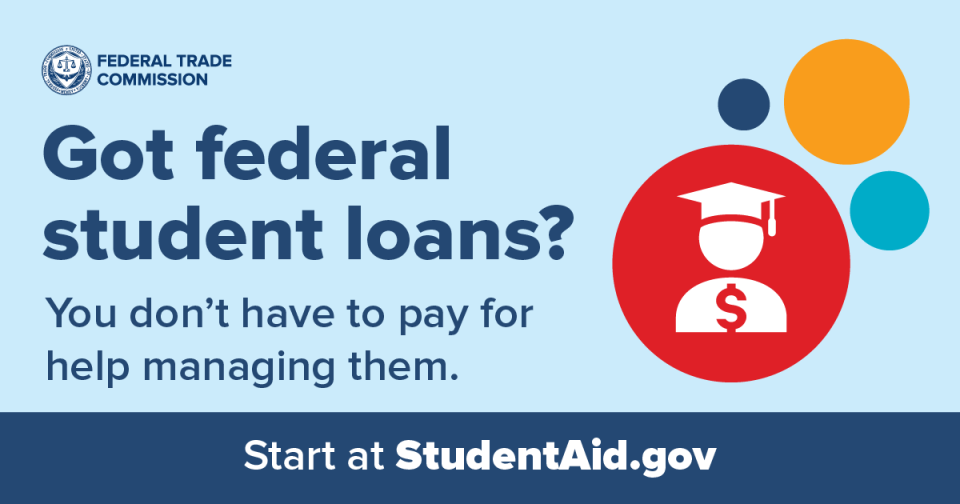You never need to pay to sign up for government student loan debt relief programs — but scammers will tell you otherwise. Here’s how to spot scam companies that charge illegal upfront fees for so-called help with your student loans.
The first thing to know is this: you don’t have to pay for help managing your student loans. If someone tries to charge you up front, before they’ve done anything, that’s your first clue that this is a scam. And nobody but a scammer will ever offer you quick loan forgiveness.
Take, for example, Apex, a company that — according to an FTC lawsuit — enrolled people in their sham student loan forgiveness program. During the federal student loan pause, when most borrowers weren’t in contact with their loan servicers, Apex signed people up for what they called debt relief programs.
So, how did they convince borrowers to get on board? Apex employees pretended they worked with the Department of Education (they didn’t) and told borrowers they were their new loan servicers (they weren’t). They then signed borrowers up to make automatic payments to a debt relief program that didn’t exist. The problem? Payments went to Apex’s pockets, rarely making it to actual loan servicers. And, to add insult to injury, the COVID-19 federal student loan pause meant that federal borrowers didn’t have to make any loan payments starting March 2020.
Now that the return to repayment is coming up, start at StudentAid.gov/repay to look at the status of your federal student loans. You’ll find, among other things, information on income-driven repayment plans that adjust your monthly payment based on your income. If your loans are private, go directly to your loan servicer. And if you spot a scam, the FTC wants to know about it: ReportFraud.ftc.gov.


BRAVO for the FTC for the info. I will fwd to all my friends, Keep up the excellent work.
The old.chief here.
Navient never paused mine but did give me a six month reprieve later on. But now they say they can't give me a IBR payment and that I have to pay the regular amount.
In reply to Navient never paused mine… by Wonder
You have every right to apply for the Income Based Repayment Plan IBR. Go to studentloans.gov to apply. From my understanding when you apply on Navients website you're directed to studentloans.gov to apply anyway. There are several repayment plan option to choose from based on your personal situation. Blessing to you!
In reply to Navient never paused mine… by Wonder
Do you have an FFEL loan or a Direct Loan? Some benefits only apply to Direct Loans... You might be able to consolidate into a Direct Loan and then you can access all the benefits of a Federal loan.
I still have companies call me about my student loan. To either refinance it ot it's time to renew you new payee account. But they also say your new payment will be 208.00 per month. And I also have delt with a refinance company the charged. But I ended up closing my account because of the scam. I also have called my student loan server to verify what my payment was and told them about the call I received to renew my payee account.